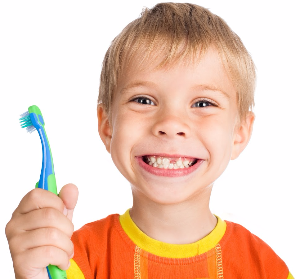
Teeth grinding is the repetitive clenching of teeth, a movement that looks as if the person is chewing vigorously without any food in the mouth. The medical term for this condition is “bruxism.”
Bruxism is well known and well documented by doctors and dentists; however, no one is absolutely sure what triggers the condition. There are many recognized risk factors for bruxism, though. There are also several effective ways to cope with and treat bruxism through behavioral modification and the use of mouth guards.
Millions of People Do the Daily Grind
The number of children and adults who grind their teeth on a daily (or nightly) basis is estimated to be around 30 to 40 million. Occasional teeth grinding doesn’t normally cause problems. But chronic bruxism often creates trouble for those who have the condition.
Some people clench their jaws ferociously at work or in other stressful daytime situations. Other people do their teeth grinding in their sleep. Many people have no clue they’re grinding their teeth until symptoms begin to show up.
Symptoms Vary Among Teeth Grinders
Parents and spouses often observe sleeping family members rhythmically clenching their teeth. There may be associated with grinding noises. Jaw pain and headaches upon awakening are often signs that nighttime bruxism is taking a toll on teeth. Occasionally, teeth grinding is so bad that a tooth will chip or crack from the pressure of the jaws being forced together.
Other symptoms include earaches, loose teeth, sore teeth, and discomfort in the face that won’t go away. Teeth grinding can lead to a condition called temporomandibular joint disorder (TMJD), which is a painful condition marked by swelling in the muscles and joints around the jaw.
Bruxism Can Be Caused by Stress
If you’re on edge and worried, your whole body, including your mouth, may tense up. You have to direct your nervous energy somewhere, and teeth grinding is often the unconscious way people focus their frustration, anger, or fear.
If you find yourself grinding your teeth as a response to stress at school, at home, at work, or out in public, now is the time to find some coping mechanisms to deal with the pressures that are negatively affecting you. Deep breathing, meditation, and exercise often help bruxism sufferers relax and unclench their teeth.
Using and Abusing Substances Can Cause Teeth Grinding
For some people, the consumption of alcohol causes them to grind their teeth. Cigarette smoking is also a cause of bruxism. In fact, smokers and drinkers have double the chance of becoming teeth grinders compared to non-smokers and teetotalers.
Overconsumption of caffeine is also a risk factor for developing bruxism. Taking certain anti-depressants can cause teeth grinding in patients, as can the use of amphetamines. If teeth grinding does result from prescribed medications, your doctor may be able to adjust or change your medications to reduce or eliminate the bruxism.
Physical Conditions May Lead to Bruxism
Sleep apnea is often associated with teeth grinding. If you suffer from sleep apnea, get it treated as soon as possible to avoid bruxism. If you already have bruxism due to sleep apnea, having your apnea treated should reduce or eliminate the condition.
Physical and mental exhaustion can lead to teeth grinding. Heavy snoring may also cause the condition. Misalignment of the teeth themselves may cause teeth scraping and grinding at night.
Mouth Guards Protect Teeth from Grinding
If you have chronic bruxism, your dentist can create a custom mouth guard that you wear during the times you typically experience bruxism. Mouth guards are made of a soft, pliable material that conforms to the shape of your bite for comfort.
Mouth guards protect the teeth from chipping and fracturing. They provide a soft cushion to ease the pain and inflammation of TMJD and other jaw swellings. Mouth guards also keep the enamel of the teeth from wearing away due to vigorous teeth clenching.
Atmosphere and Positioning Help Nighttime Bruxism
If stress and aggression are the cause of nighttime teeth grinding, it’s important to create new, calming bedtime rituals to lower your stress levels as you fall asleep. Make your bedroom a sanctuary of solitude and peace by leaving your phone, laptops, and other devices outside of your sleep space. Since lack of sleep is often a cause of bruxism, choose an earlier bedtime when possible to get more good slumber.
Snoring and sleep apnea are sometimes worse in those who sleep on their backs. This means teeth grinding may also be worse when you are sleeping in this position. Sleep on your side or stomach instead. Also, be certain pillows aren’t compressing your airway, since interrupted breathing during sleep is associated with an increased likelihood of bruxism.
If you or your child is suffering from bruxism, contact Dr. Jerry F. Maymi & Associates today to schedule a full evaluation and examination of the teeth. We create high-quality mouth guards to help treat bruxism, and we can also get any uneven teeth aligned so they’re less likely to grind.
